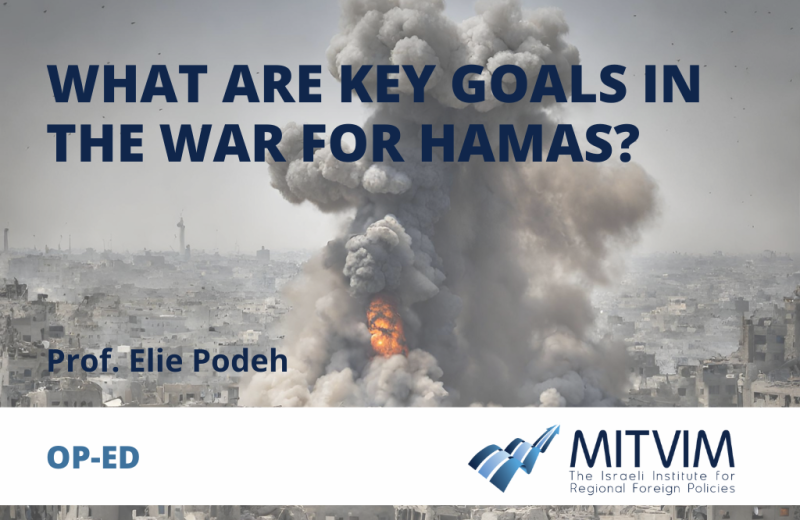 Op-eds
Op-eds
The timing of the murderous Hamas assault on Israel was likely the result of tactical considerations: the depletion of Israel’s Gaza border forces due to the Simchat Torah holiday as well as the diversion of units regularly deployed there to protect West Bank settlers in recent violent escalations. Hamas was also aware that thousands of partygoers would be attending a rave scheduled for that weekend near the border fence.
Looking at the broader context it is clear that the Hamas massacre was also prompted by a perceived Israeli weakness stemming from deep internal divisions, as well as the organization’s desire to enhance its standing in the Palestinian arena given the declining popularity of the Palestinian Authority (PA) headed by its president Mahmoud Abbas.
No less important was the intention of Hamas, backed and encouraged by Iran, to torpedo the fast-moving normalization process between Israel and Saudi Arabia. US President Joe Biden put it succinctly, saying, “One of the reasons Hamas moved on Israel… [was because] the Saudis wanted to recognize Israel.”
Even before Biden’s explanation, a Hamas spokesman in Lebanon admitted that the goals of the terrorist attack were to destroy Israel, liberate Palestine, and deal a blow to normalization between Israel and the Arab world. Leading Iranian officials repeated this argument as well. Saudi Arabia’s announcement of a freeze in the US-mediated normalization negotiations with Israel appeared to have been a step toward this goal of Hamas.
However, the US and Saudi leaders have now affirmed that, as soon as the war is over, they will work toward a sustainable peace between Israelis and Palestinians and continue the steps towards Israel-Saudi normalization already underway.
Why were Iran and Hamas so determined to torpedo the normalization process?
The Iranian-led “resistance” axis regards the US-sponsored Israeli-Saudi normalization as a strategic move designed to change the regional balance of power by advancing a Saudi defense pact with the United States and strengthening Israel’s standing in the Middle East, by dint of the special Saudi role as custodian of Islam’s holy sites – Mecca and Medina – and its attendant influence on other Arab and Muslim countries regarding ties with Israel.
In these respects, Israeli-Saudi normalization would likely be a game-changer in the Middle East. Normalization was also supposed to bolster the PA, undermining the popularity and legitimacy of rival Hamas. Iran clearly had good reason to fear that these developments threatened its influence and goals in the region.
HAMAS HAS a history of mounting terror attacks intended, among other things, to undermine political moves. Thus, for example, a string of Hamas terror attacks against Israel in 1994-1995 were intended to torpedo the Oslo peace process between Israel and the Palestinians and were undoubtedly a major factor in this outcome.
Seven years on, in 2002, on March 27, Hamas sought to sabotage the peace process by targeting the Park Hotel in the city of Netanya, murdering 29 Israeli civilians and wounding hundreds, then too, choosing the date of a major Jewish holiday celebration, Passover, to strike at those seated at the festive meal.
The attack was also intended to torpedo the Arab Peace Initiative scheduled for approval by the Arab League summit in Beirut the following day, March 28, 2002. Four days later, Hamas carried out another terrorist attack, killing 15 civilians in a Haifa restaurant and wounding some 40.
These mass casualty attacks resulted in an Israeli military operation, codenamed Defensive Shield, intended to wipe out Palestinian terrorist organizations in the West Bank. Needless to say, the Israeli government was disinclined to consider the Arab Peace Initiative following these brutal attacks.
The common thread tying together these attacks of the past three decades is the indication of strategic thinking on the part of all the parties involved in planning them. Even if there were other contributing factors to the failures of the peace negotiations, the Hamas attacks succeeded in achieving their goal of derailing peace.
At the end of this war, a supreme effort must be made to renew the US-mediated negotiations on an Israeli-Saudi normalization agreement. The war has made clear that such an agreement would have to include a significant Palestinian “component,” offering a political horizon for the Palestinians’ aspirations.
The normalization agreement is of course important in itself, but it is also of paramount interest in order to highlight the failure of Iran and its allies to sabotage it.
The article was published in the Jerusalem Post on October 31.


